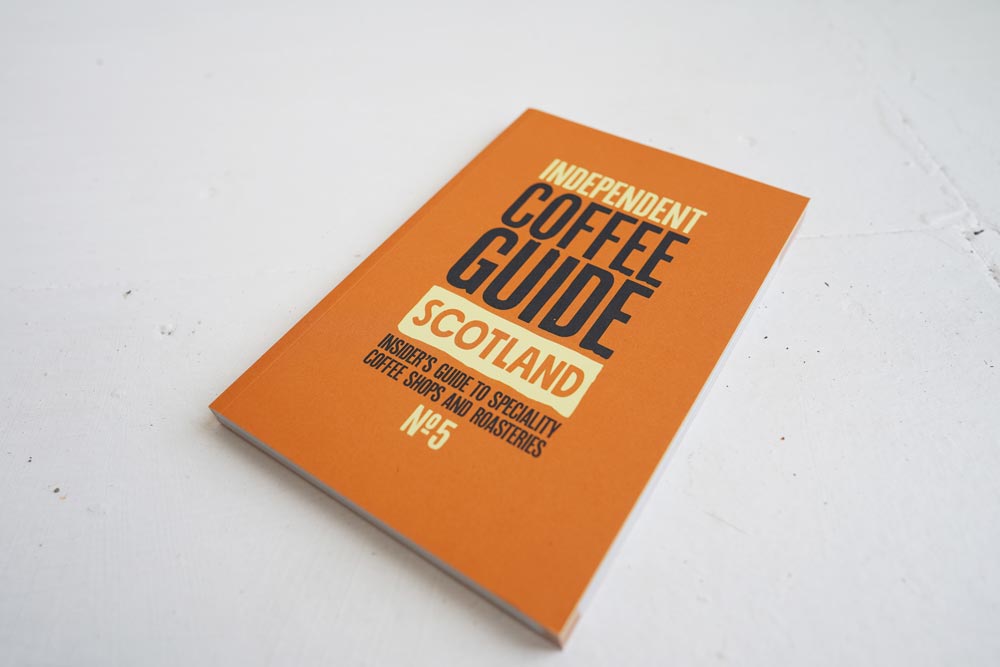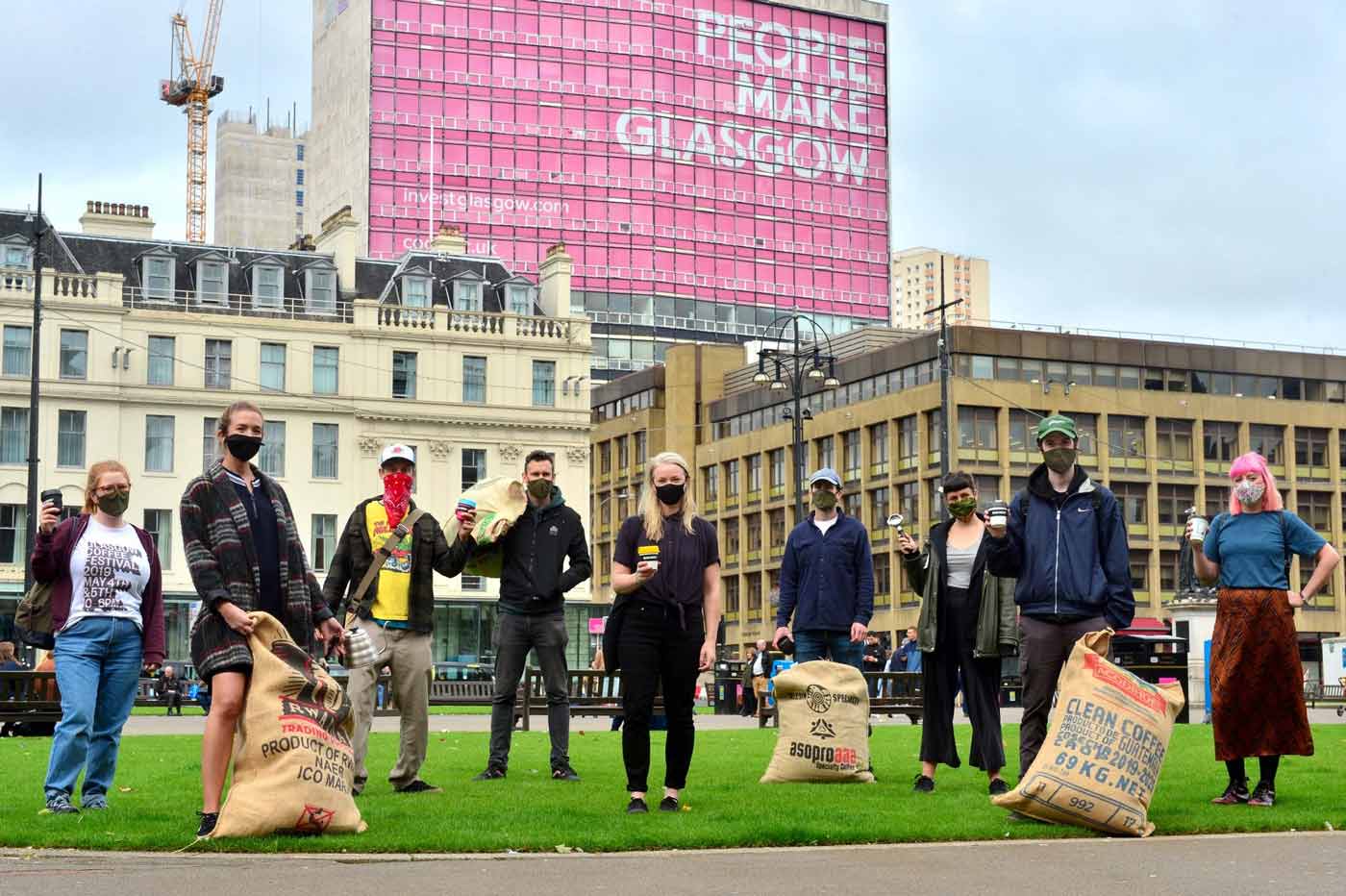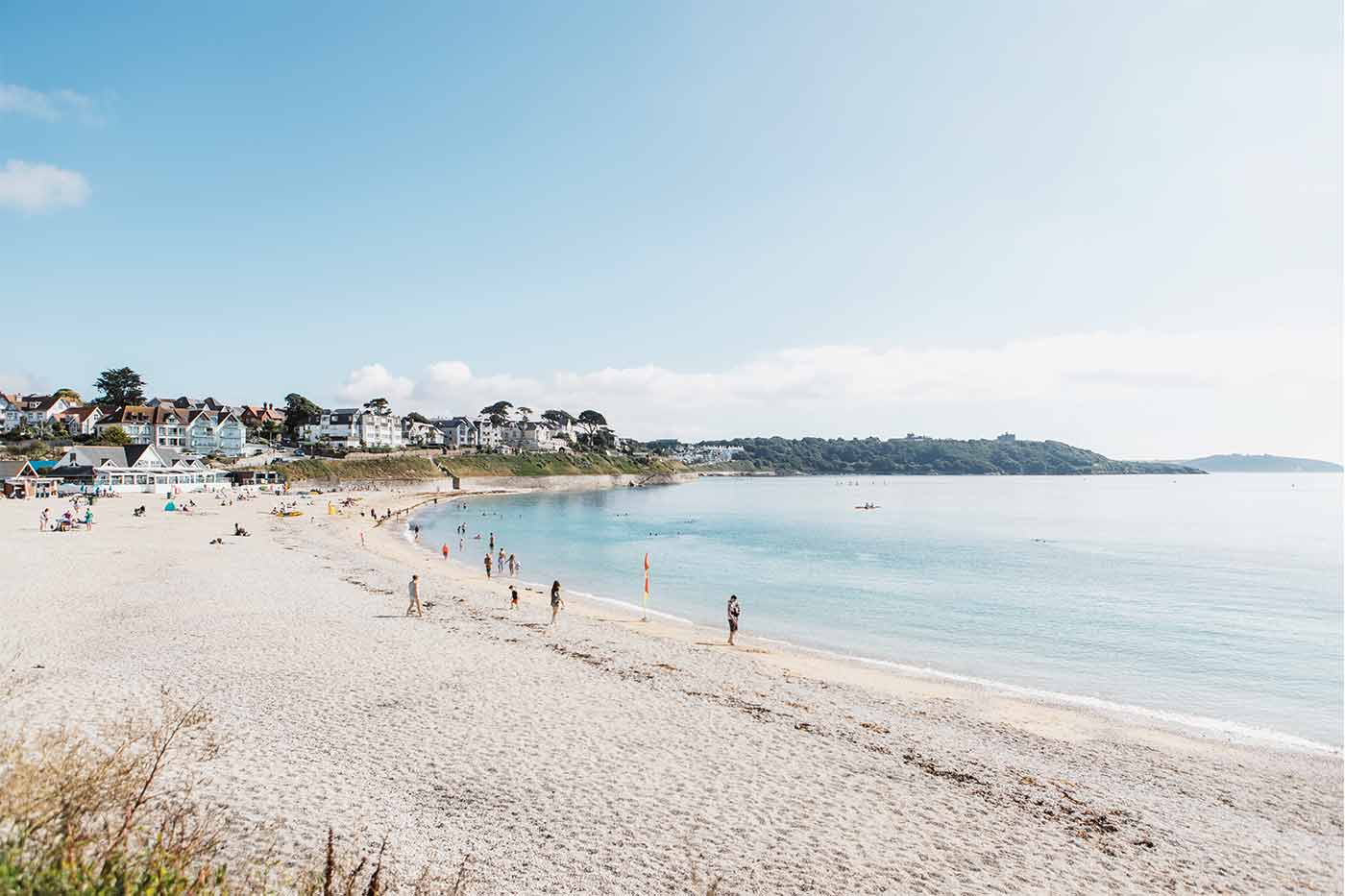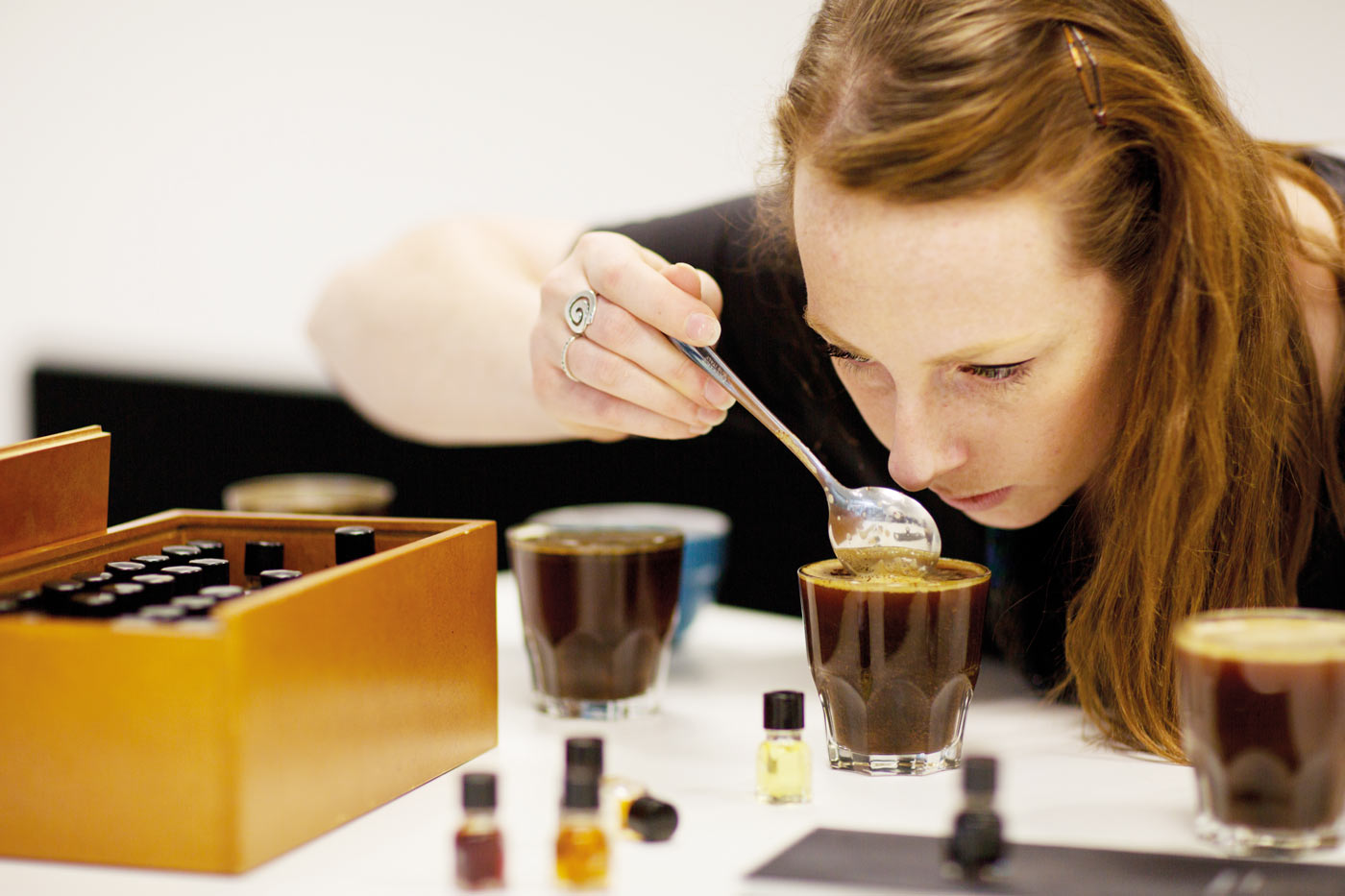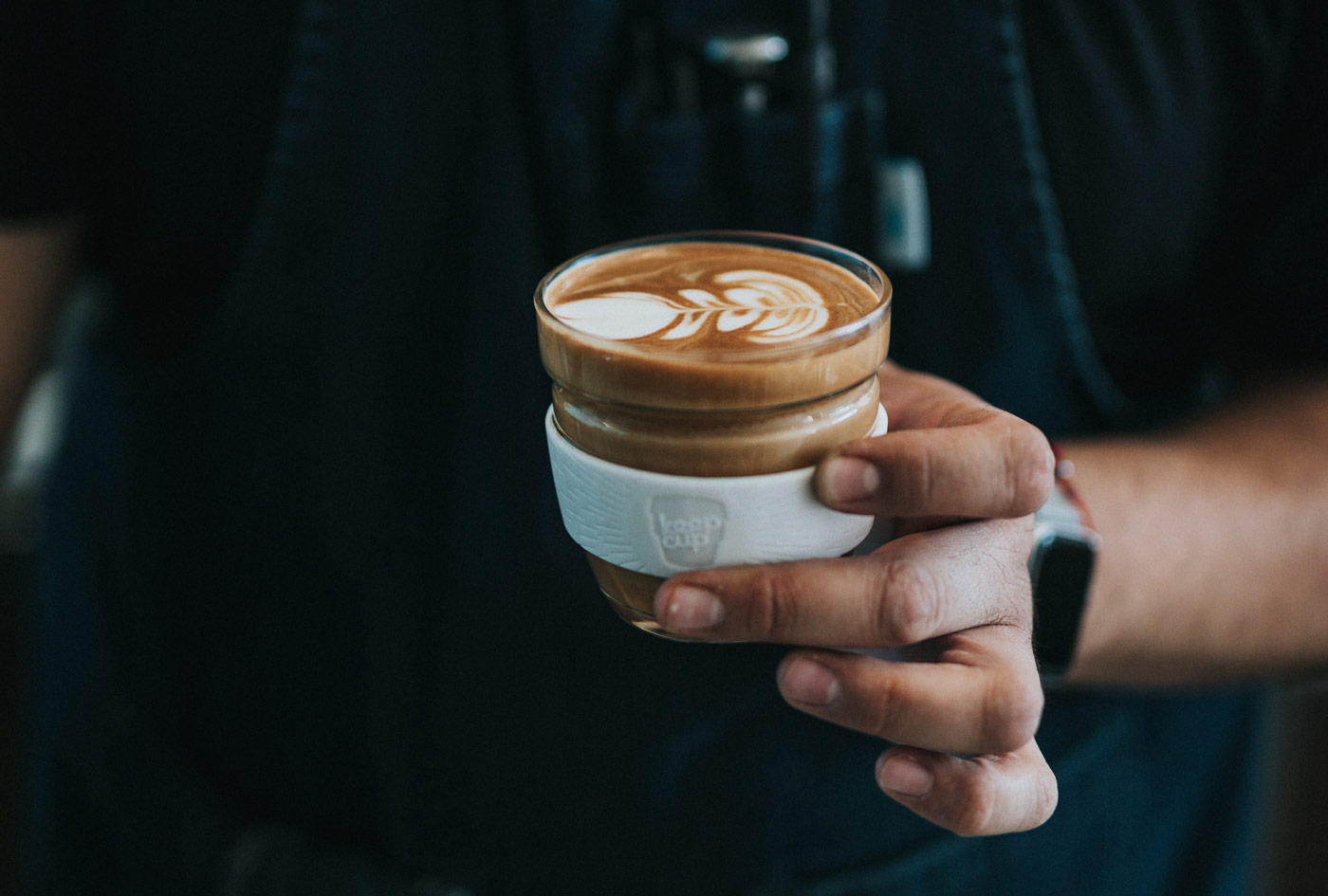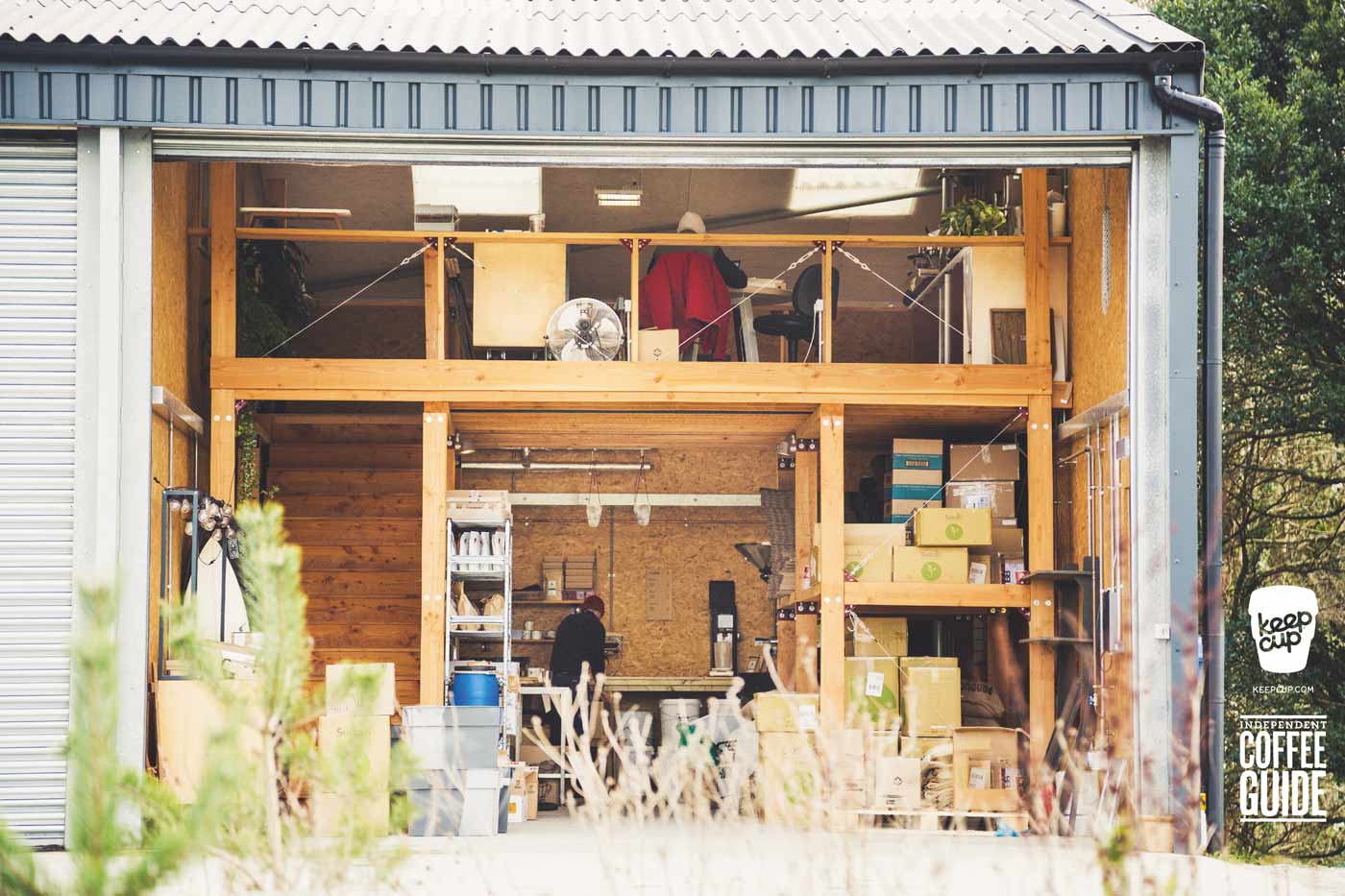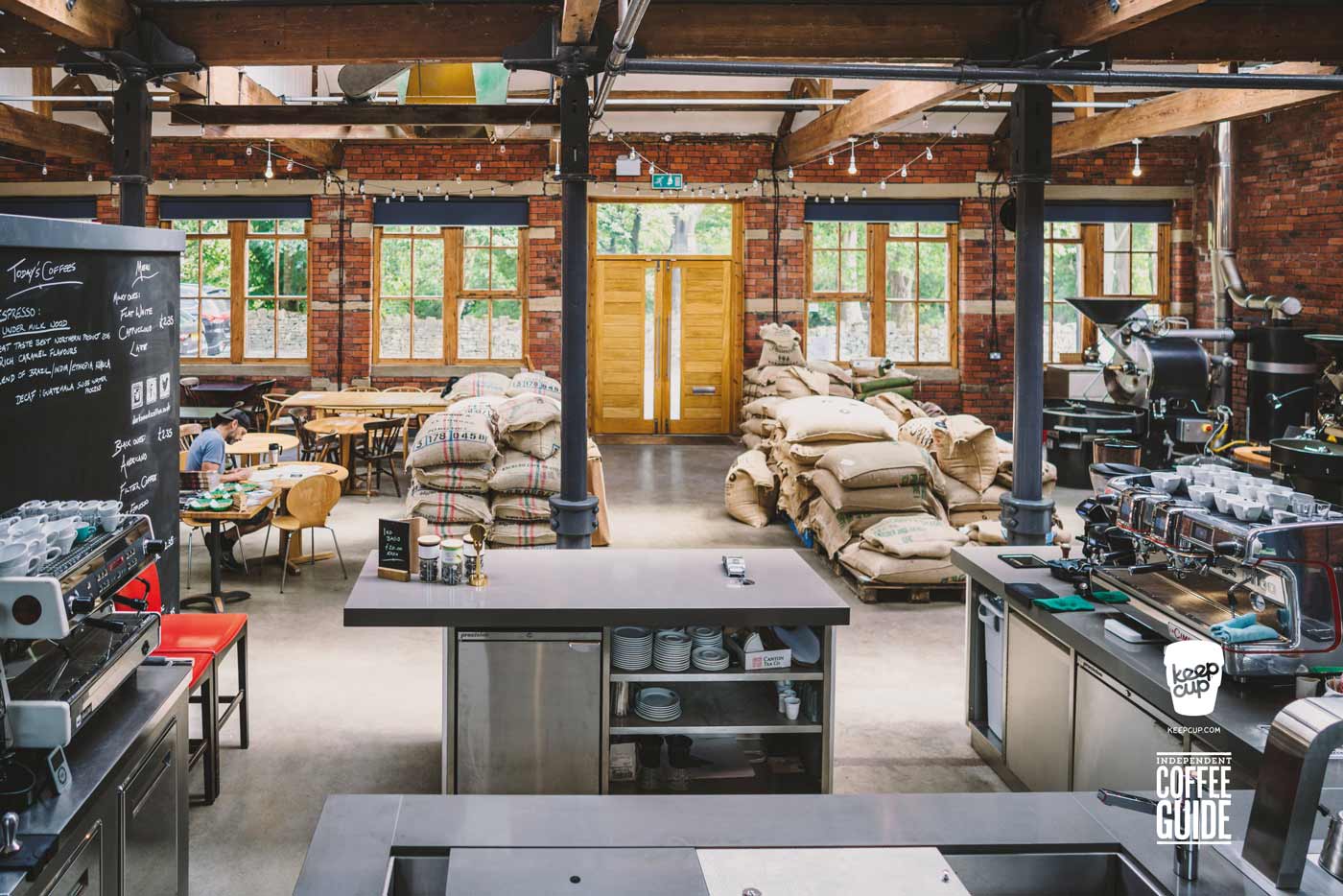Eco game-changers
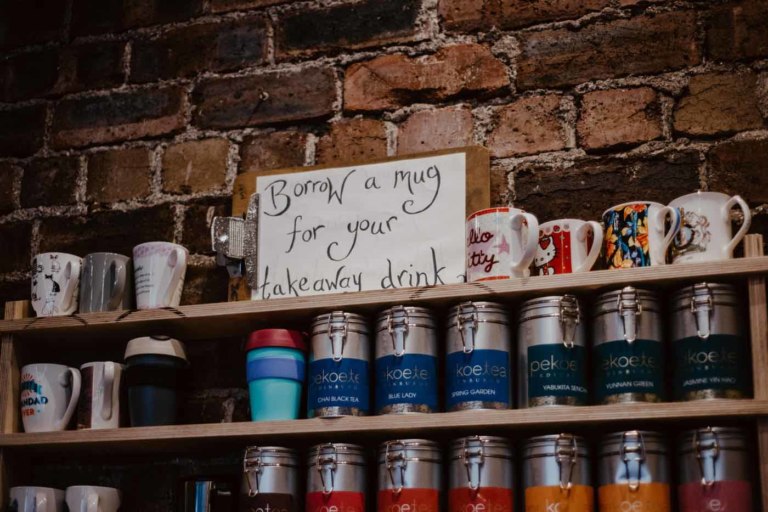
From weigh-your-own lunches and zero-waste shopping to refashioned coffee grounds and slurping beer from a KeepCup, the speciality community is getting creative in its ethical efforts. Meet the game-changers spearheading sustainability in Scotland
The Wildcat Cafe, Fort William
A speciality-shaped hole and lack of vegan options planted the seed for Fort Williams’ first eco-conscious cafe.
‘We hadn’t planned to open a speciality coffee shop,’ admits Wildcat co-owner Stephen Kershaw. ‘My partner Deanna and I had worked at an environmentally-conscious cafe in London which was where we began to explore speciality. When we moved to the Highlands, we noticed a lack of both good coffee and vegan options and wondered if we could spread the word about conscientious consumption while indulging our passions for both.
‘Our initial ethos was to create a cafe which created a great impression of vegan food and only used ethical and organic ingredients (where possible) as they have the lowest environmental impact. It was also important to us that every decision would take into consideration the staff, suppliers and customers in order to leave the community a better place.
‘We think we’ve done a good job at keeping to these ideas. The Wildcat Cafe has a complete ban on single-use cups, only uses plant-based milks, 95 per cent of the menu is organic and there’s a zero-waste shopping area with plastic-free food hoppers. We’ve been amazed at how quickly we’ve been adopted into the community and the feedback from locals and tourists has been fantastic.
‘It hasn’t all been plain sailing, of course. Some people simply won’t give us a try because we don’t use “proper milk” or serve cheese toasties. Bringing a reusable cup still hasn’t become second nature either, and some customers have grown frustrated with the inconvenience, even though we’ll lend anyone a mug if they promise to bring it back. That said, overcoming these bumps is incredibly rewarding and we’re proud to be leading the way here.
‘If we don’t tackle climate change, there won’t be any coffee plants. Small businesses can adapt and change the way they do things much faster than the chains.’
Glasgow Coffee Festival
Teaming up with sustainably savvy KeepCup, Glasgow Coffee Festival became the UK’s first disposable-free coffee fest in 2018 – and saved 18,000 single-use cups from heading to landfill.
‘We had wanted to find a way around the disposable cup conundrum since we launched the festival four years ago but the logistics always seemed like an insurmountable challenge,’ says Glasgow Coffee Festival and Dear Green Coffee Roasters founder Lisa Lawson. ‘I was over the moon when KeepCup partnered with us to make the idea of a reusable only set-up a reality.’
‘The first task was to encourage festival-goers to bring their own reusable,’ explains KeepCup’s Jack Ravenscroft, ‘anything from a treasured cork KeepCup to an upcycled jam jar.
‘Anyone who couldn’t bring their own could rent a KeepCup for the duration of the event and get their money back on the way out. Eight wash stations around the venue allowed festival-goers to try as many coffees as they liked, while an amazing group of GCF volunteers made sure everything ran smoothly.
‘Over two days we saved over 18,000 disposable cups from going to landfill, though La Marzocco also used the loan-scheme for beers at the after-party so the true number was even higher. The festival also worked with Mossgiel Farm to supply milk for the show in glass bottles which saved 412 plastic milk bottles going in the bin.’
‘The response from the attendees and exhibitors was overwhelming,’ adds Lisa. ‘It proves that consumers are ready to make the switch to reusable cups – and that indie coffee businesses are willing to support them.’
Foodstory Zero, Aberdeen
Caffeine-hungry students arrive armed with reusable cups, takeaway containers and bamboo cutlery at Foodstory’s new zero-waste cafe at the University of Aberdeen.
‘Opening a second cafe is like having a second child,’ explains Foodstory co-founder Sandy McKinnon. ‘When you have the first one you learn as you go but when the second comes along you’ve got a grounding in the basics, know what to expect and can predict the bumps in the road ahead.
‘Sustainability and an awareness of the environment have always been key values at Foodstory but, when we launched the original venue, we came across hurdles we hadn’t foreseen. When we had the chance to open a cafe space within the University of Aberdeen we took the blank canvas – and our experience – as an opportunity to challenge the status quo.
‘We were astonished at the amount of waste a business could produce. The coffee operation alone – nonrecyclable bean packaging, disposable cups and piles of plastic milk bottles for starters – was alarmingly wasteful. The new cafe (which, with ten seats, is a mostly takeaway set-up) is zero-waste. We encourage customers to bring refillable cups for drinks, takeaway containers for food and reusable cutlery. Milk is delivered in glass bottles by a local dairy which are then collected again; coffee beans arrive in reusable tubs; food is served on a weigh-your-own basis to reduce waste and cleaning materials such as blue cloth are biodegradable.
‘The reaction has been a mixed bag. Most of our customers are behind the concept and have improvised with some interesting cup options (we’ve had a few flat whites in yogurt pots) but some can’t get their heads around it. It’s understandable; we’re essentially challenging the community to change their daily habits.
‘Despite this, we’re the only ones doing this around here at the moment and I think it will get easier in time. In five years I hope the zero-waste set-up will be the norm.’
As featured in
Get your Indy Coffee Guides

England - North, Midlands & East No7
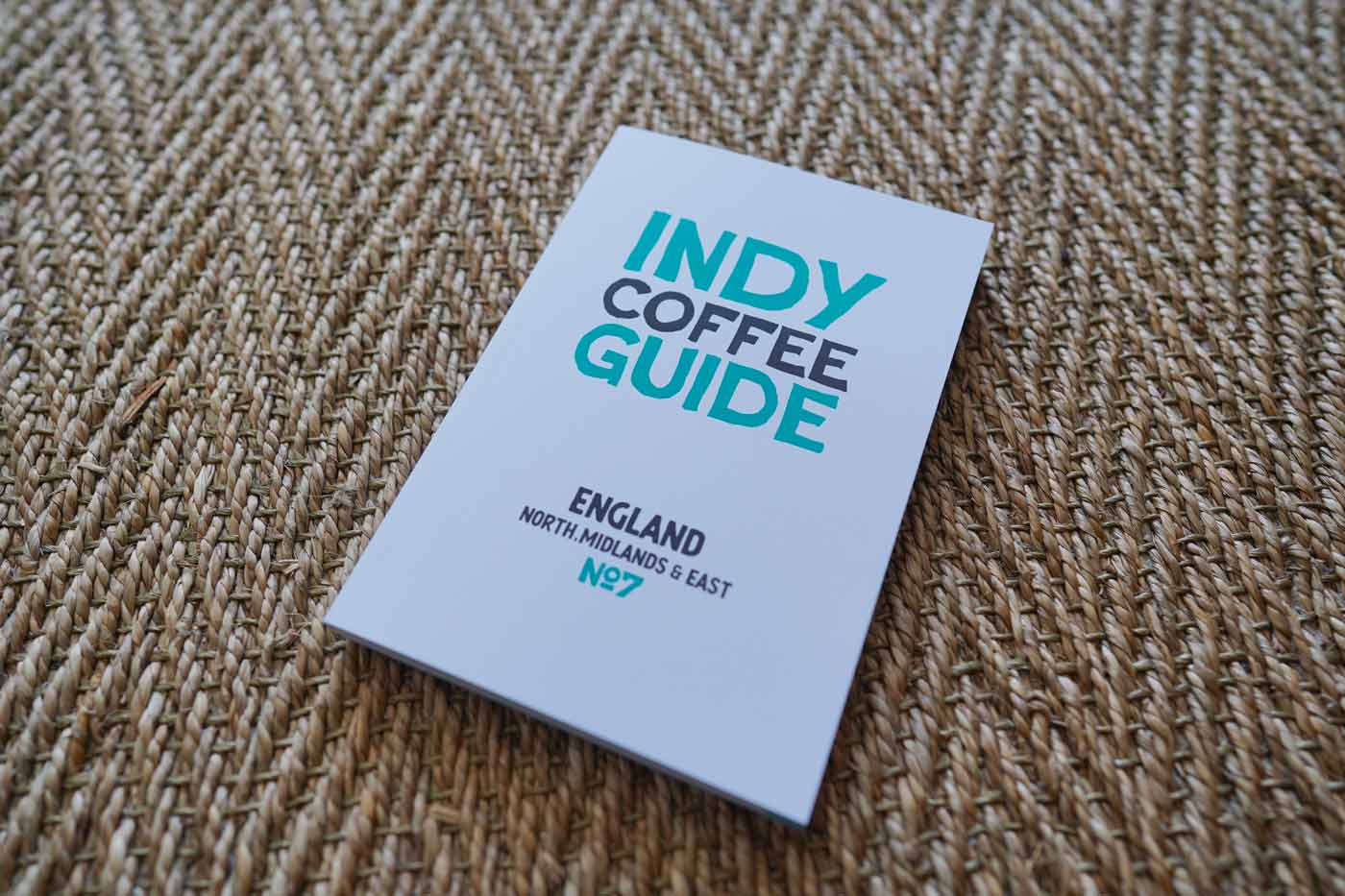
Scotland Indy Coffee Guide No 6
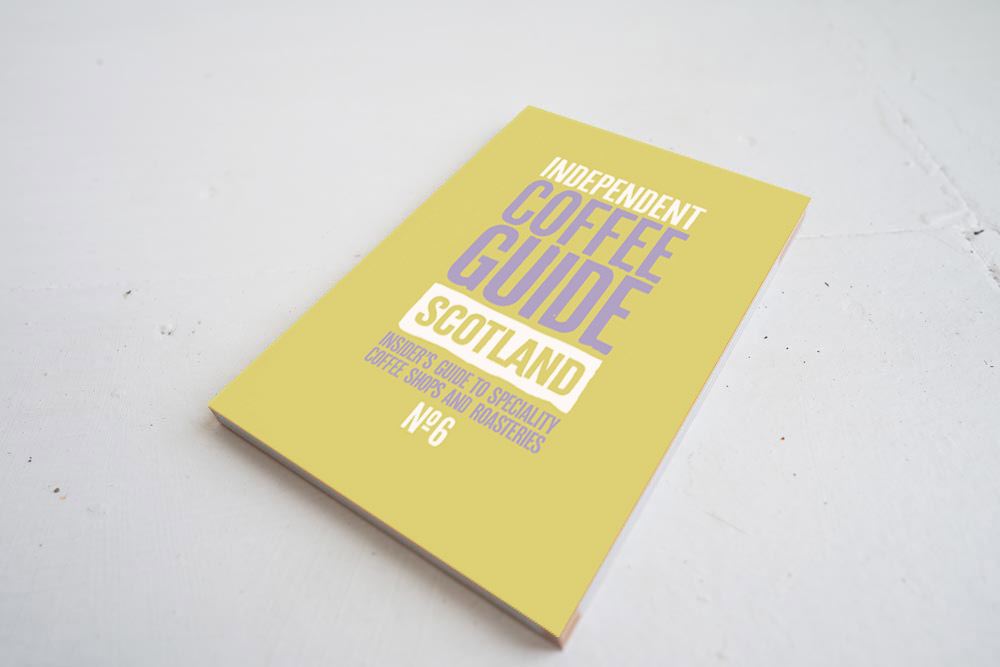
Indy Cafe Cookbook Volume 2
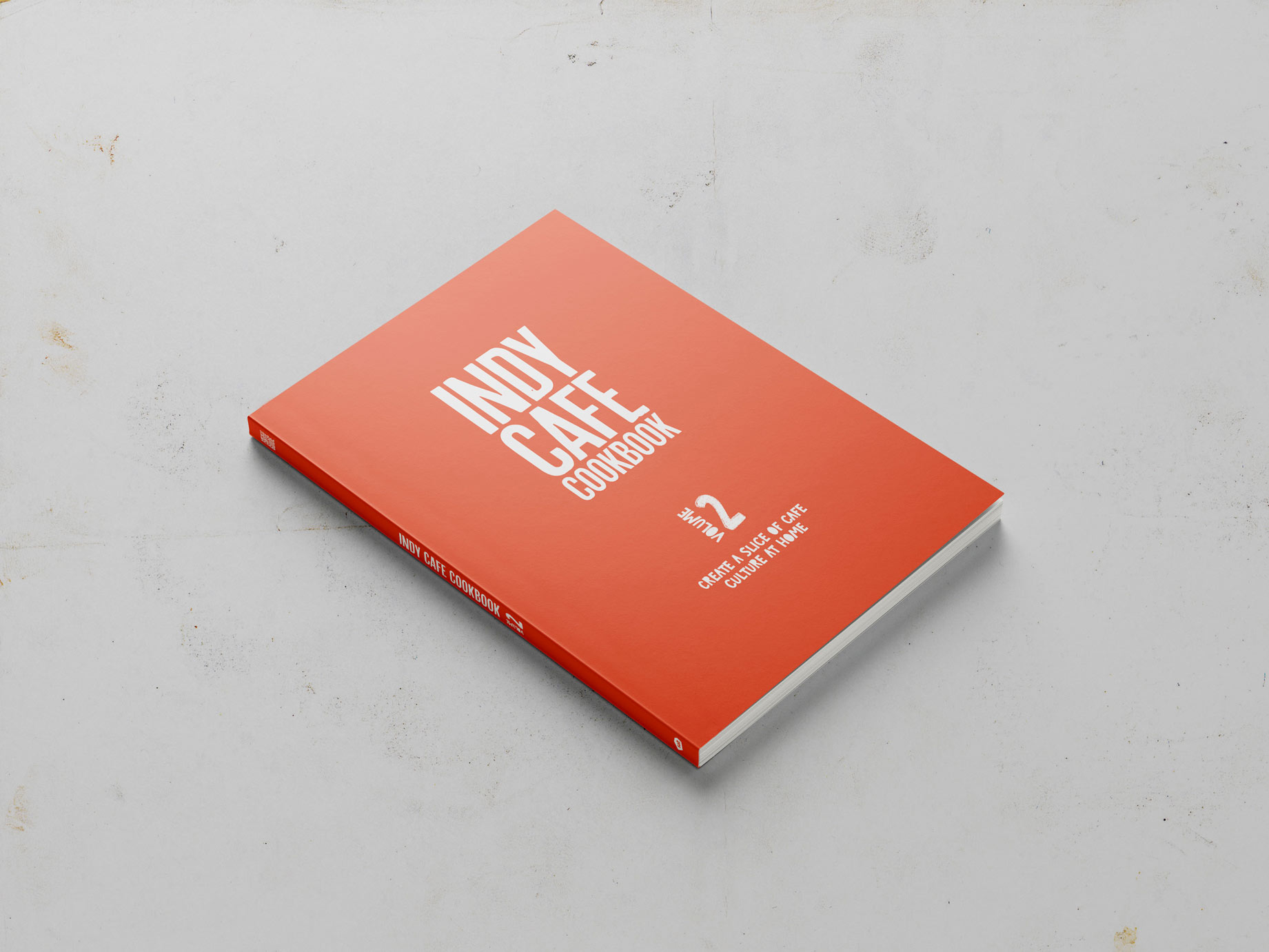
The South & South Wales Indy Coffee Guide No7
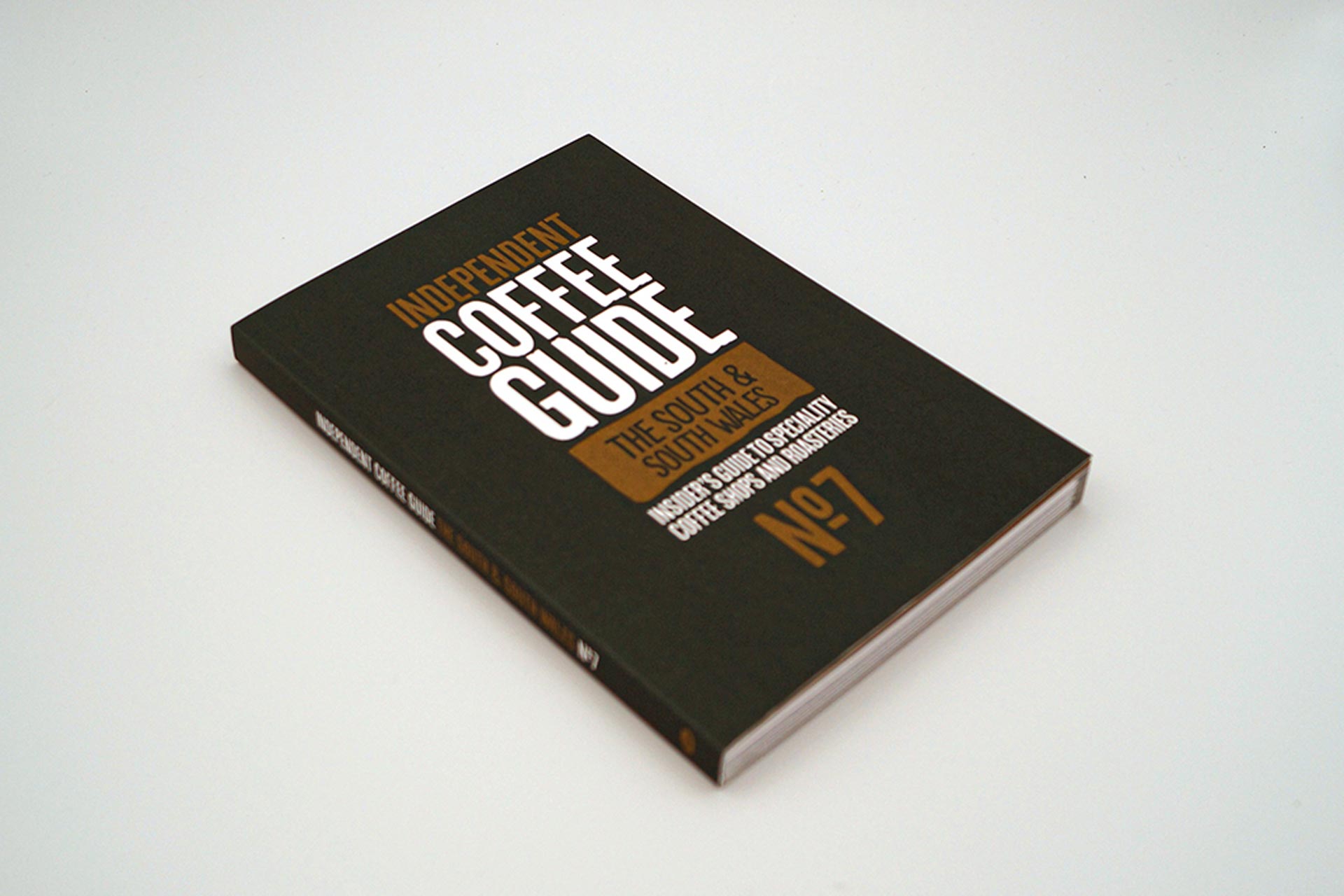
Scotland Indy Coffee Guide No5
